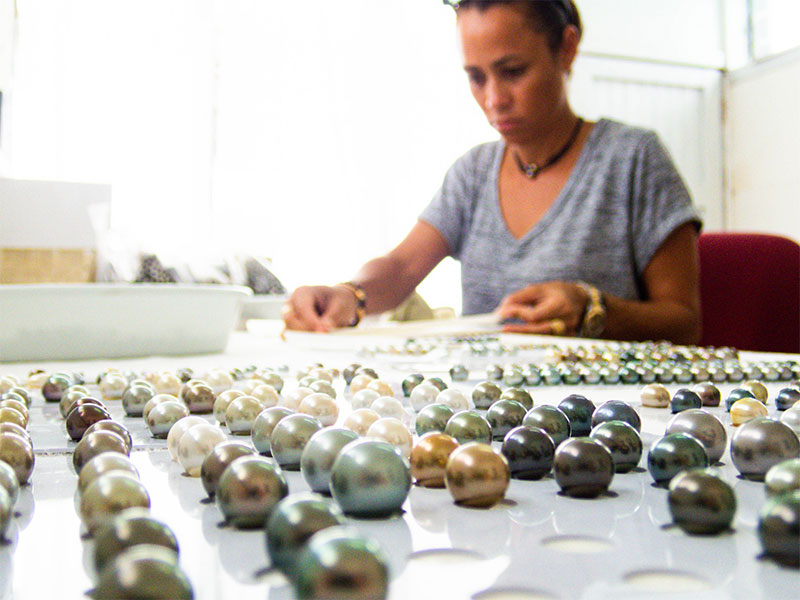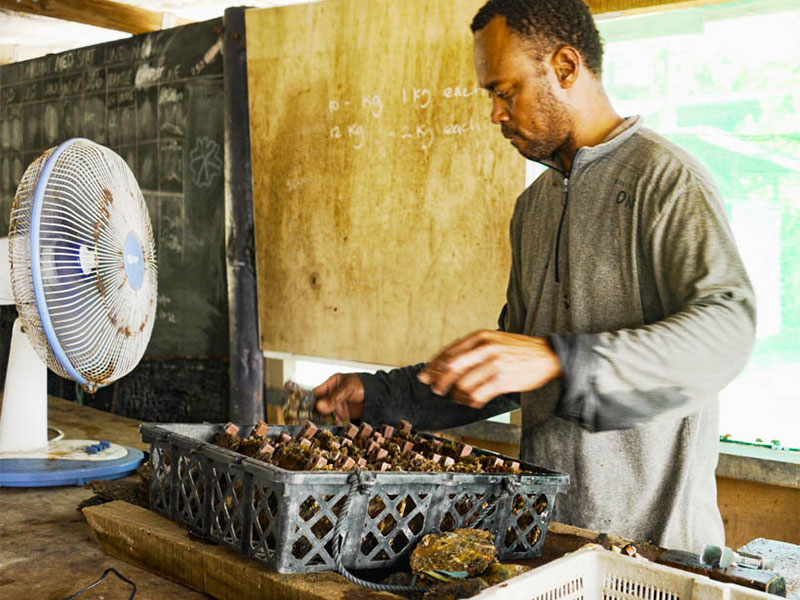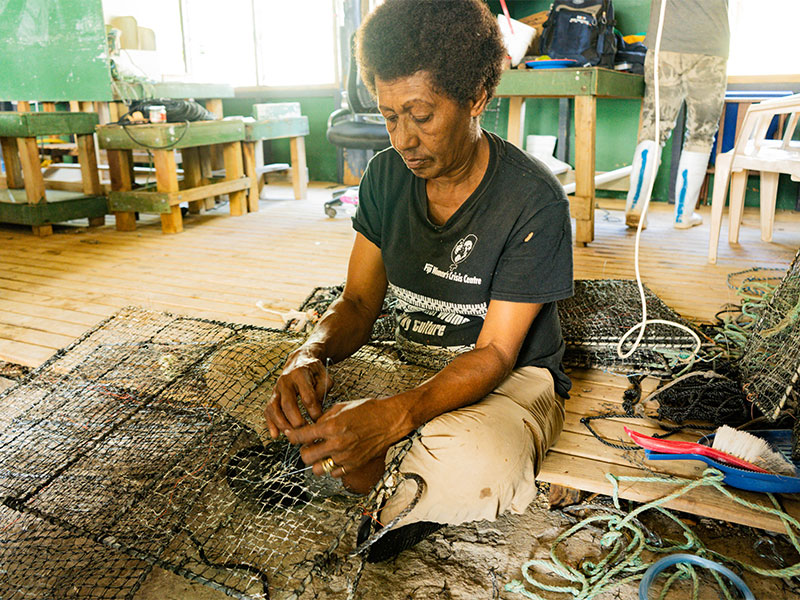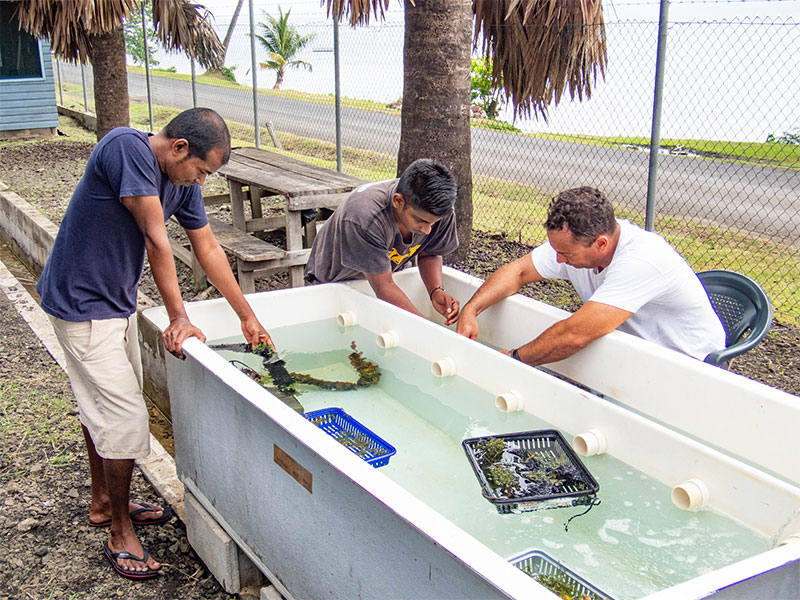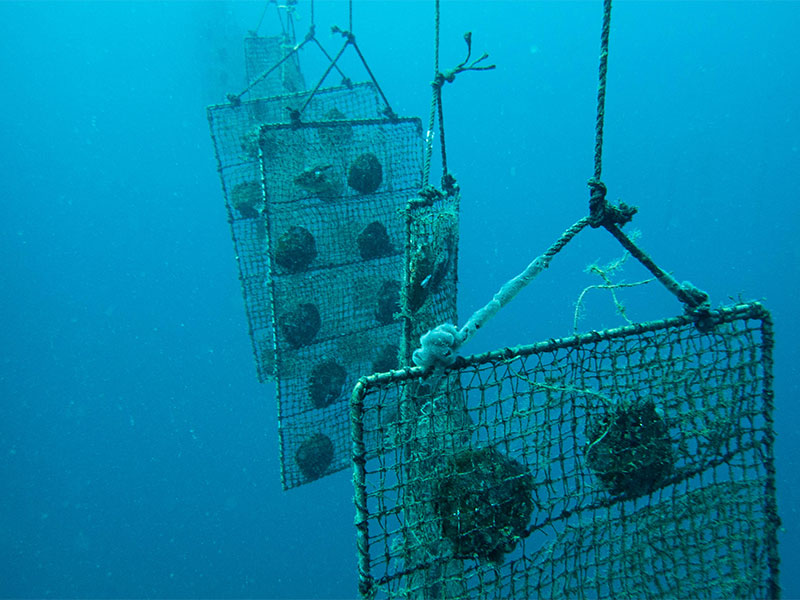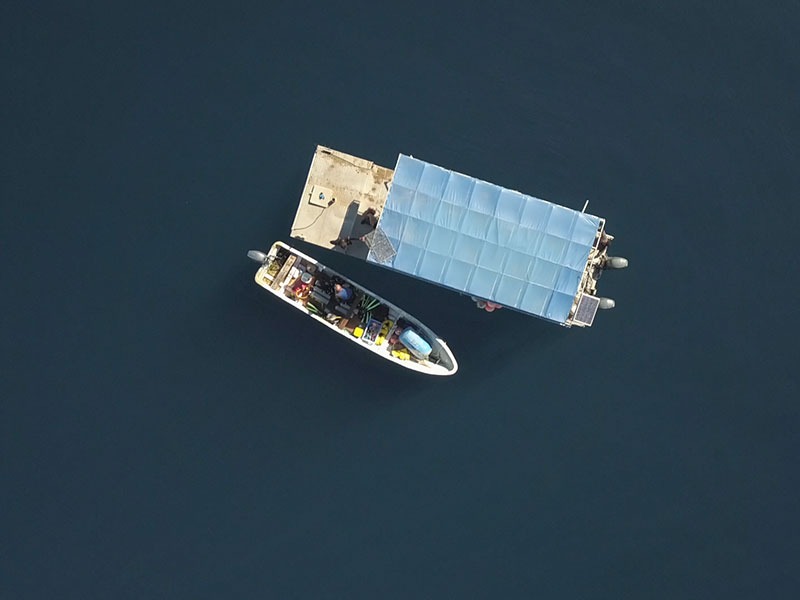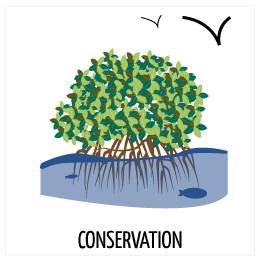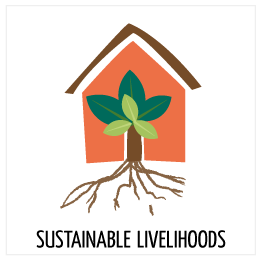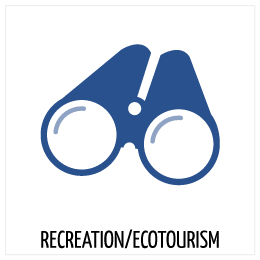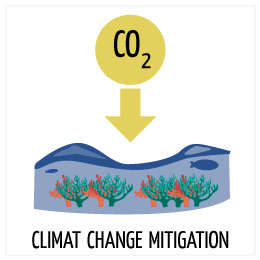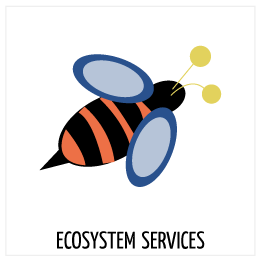In Savusavu, local pearl company J. Hunter Pearls has developed a unique business model to oyster pearl farming, combining ocean stewardship, diversification of sustainable livelihoods and support to local rural communities. J. Hunter Pearls works closely with indigenous communities, where farms are located and assists local pearl farmers by sharing their expertise and providing technical assistance and access to markets. Income from nearby communities is generated through both seasonal and permanent employment, while also providing access to food and supporting micro-businesses. Pearl oysters require pristine water conditions to thrive, with pearl farming often described as ecological aquaculture, that requires farmers to safeguard their marine environment in order to cultivate high quality pearls. Pearl farms are protected no-fishing zones, providing a refuge for various marine species and preserving the marine biodiversity of the coral reefs. The oysters themselves provide multiple benefits other than the creation of pearls, a fully natural and organic gem, their beautiful shells a byproduct of the industry is utilized in unique jewellery, home ware items and as a landscape product, the oyster meat is sold to top end resorts and restaurants as a rare delicacy. This environment-friendly and socially responsible business approach demonstrates how the private sector can have a positive impact on conservation, support communities and their livelihoods through an innovative way of collaboration.
Where: Savusavu Bay and Buca Bay, Vanua Levi, Fiji.
When: Since 2000
Who: Company J. Hunter Pearls Fiji, in partnership with the traditional fishing right owners of Savusavu (nine villages of Savusavu)
How: Integrated collaborative approach with the traditional fishing right owners of Savusavu (nine villages of Savusavu):
- Diversifying the local economy by providing alternative livelihoods and reducing the risk of overfishing through community-owned and operated pearl farms, full time employment (50 staff) and seasonal work during harvest (spat collectors)
- Promote environmental stewardship and ensure marine protection in the nearby area so that the oysters can thrive
- Provide social benefits through microbusiness schemes
- Providing a premium Fijian grown and made luxury product internationally recognized
Impact
Benefits for nature:
- Pearl farms are mostly no take zones and serve as breeding and refuge area for marine species
- Safeguarding marine ecosystems and pristine ecological conditions
- Establishment of multi-species hatchery to provide pearl oysters for farming rather than exploit from wild, ability to sustainably reproduce other threatened or endangered species for restocking of reefs and as a food source for local and export industry.
- Giant clam reserve, a sanctuary of 4 of the 12 existing clam species that serve as broodstock for hatchery.
Benefits for communities:
- Diversifying income generating activities through a yearly lease income to local fish right owners, permanent and seasonal jobs for farmers and divers
- Multiple ecosystem services provided by oysters (pearl, decorative shells, food, quality organic fertilizer, improving water quality, functioning as carbon sinks)
- Support for micro-business schemes
- Community support: scholarship grants for students, improving community facilities/logistics
Elements of success: Member of the blue pledge, endorsed by UN and CIBJO. Award winning company.
Remaining challenges: The cyclone winston (2016) caused huge damage to the farms and infrastructure. The frequency of strong cyclones will further increase due to sea temperature rise as a result of climate change. It is import to further strengthen resilience to the impacts of climate change on the ocean. The marketing and educating of the consumer about marine farmed pearls and the benefits to our environment and people to influence consumer choice.
Sustainability: Development of an Environmental Code of Practice (ECOP) that serves as a working document for sustainable pearl farming in Fiji while working closely with the government. Long-term employment in the Savusavu region. Founding member and pearl farmer of The Blue Pledge.
More info: article1, article2, article 3, website1, website2, TheBluePledge,facebook
Contact: J. Hunter Pearls
Short documentary: J.Hunter Pearls, pioneers of a blue economy
